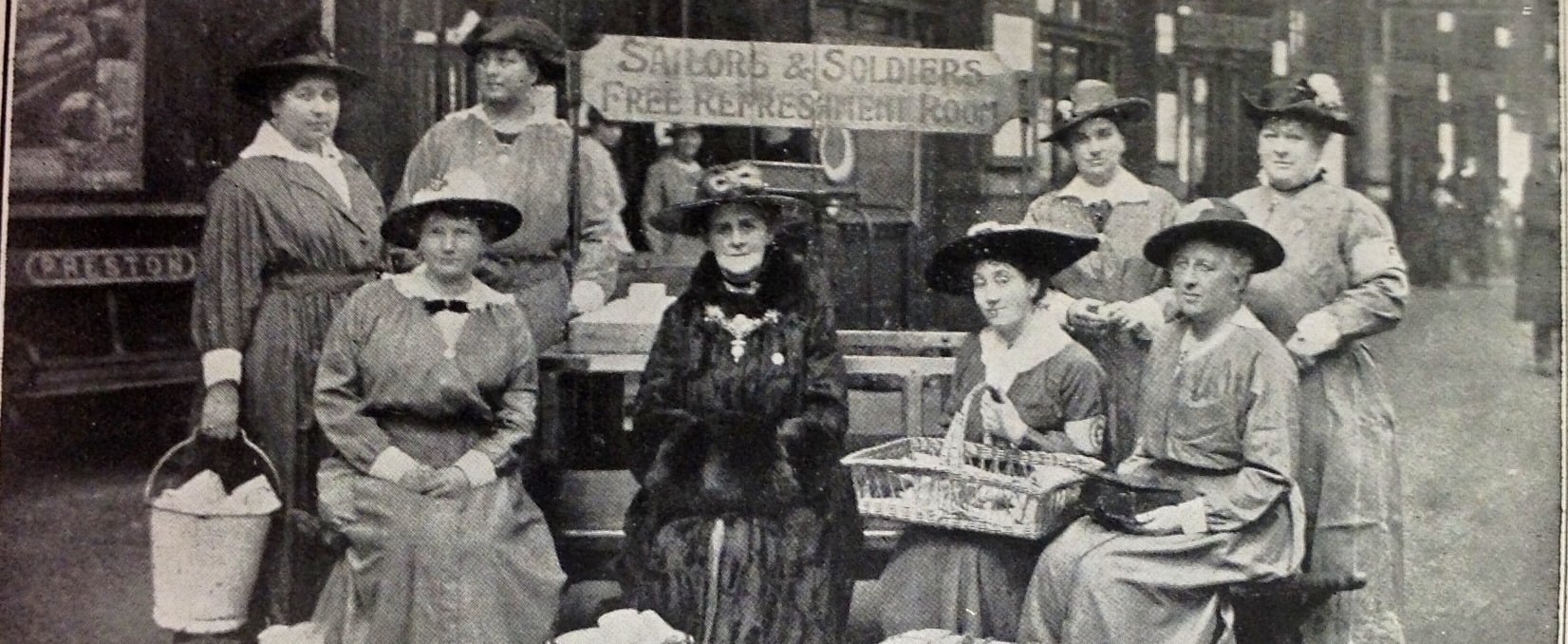
Beatrice Todd
1876 - 1958 | 5, 7 Winckley Square
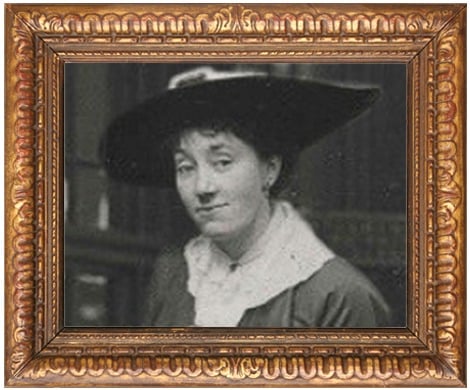
Beatrice Todd (née Rickward) was as remarkable as her husband James Todd, the successful Preston Chartered Accountant and businessman, whom she married in 1908 in Middlesex.
Her public involvement was wide ranging.She had a major impact on the life and history of Preston during and after WW1. In the years from 1908 to the 1930s she was at various times:
- Secretary of the Preston branch of the National Union of Women’s Suffrage Societies (NUWSS).
- Chairman of the Preston Station Sailors and Soldiers’ Buffet
- Leader of the committee to establish the Preston Infant Welfare Voluntary Women’s Association
- Honorary Treasurer of The National Women’s Citizens Association
- President of Preston Women Liberals Association
- Vice Chairman of Preston Park School
- Vice Chairman of Preston Council’s Maternity and Child Welfare committee
- Justice of the Peace
Beatrice was also very active in the Leyland area when living at Farington Lodge, in particular with the establishment of the Leyland Day Nursery.
Her family life was less positive than her public life.
Beatrice’s Early Life
Beatrice was born Beatrice Rickward (the surname is spelt variously as Rickword/Rickward) in 1876 in Colchester, Essex. Her father was George Rickward, he married twice. Beatrice was one of seven children from his second marriage to Hester Bawtree. She also had three half-siblings from her father’s first marriage.
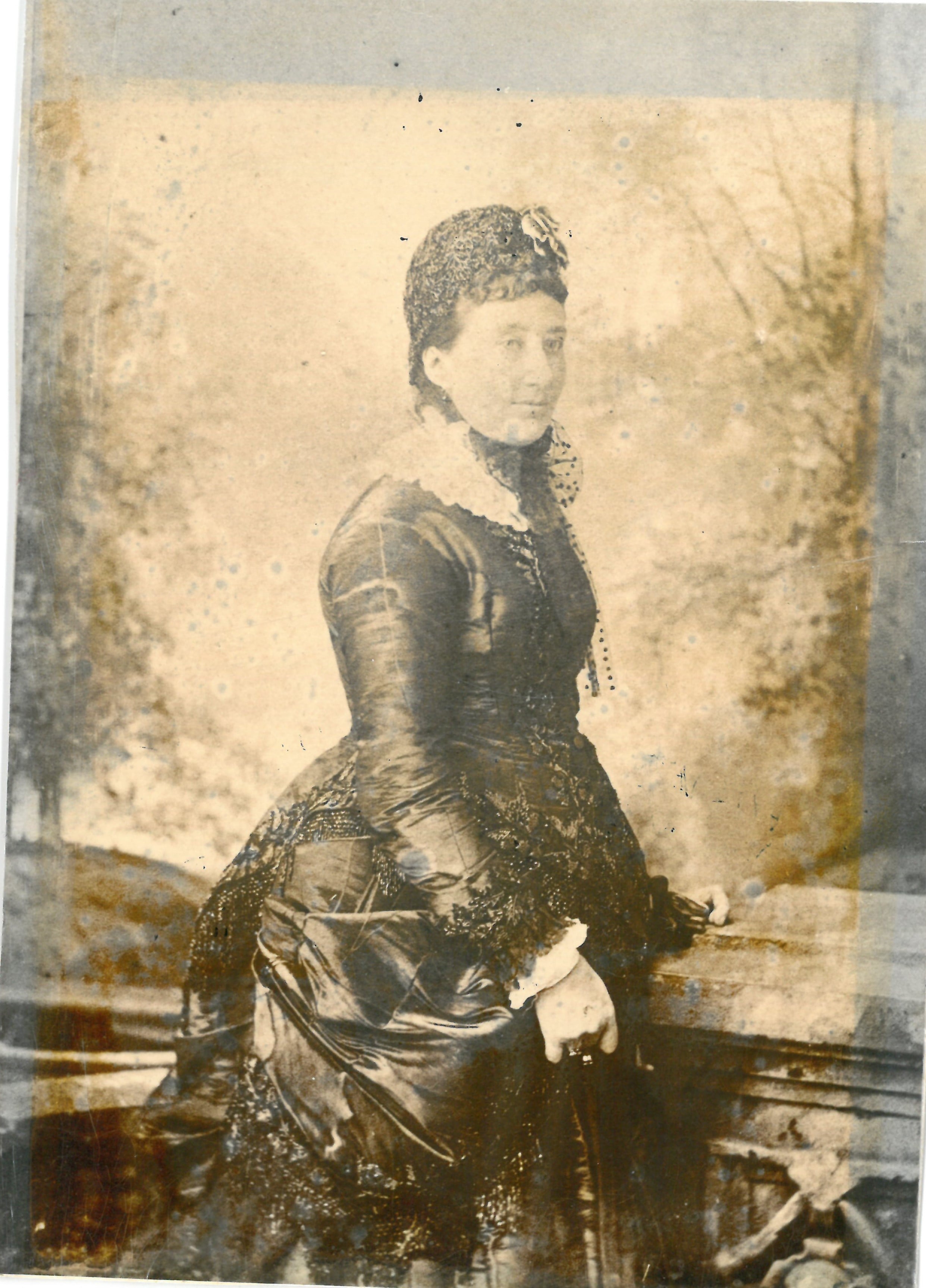
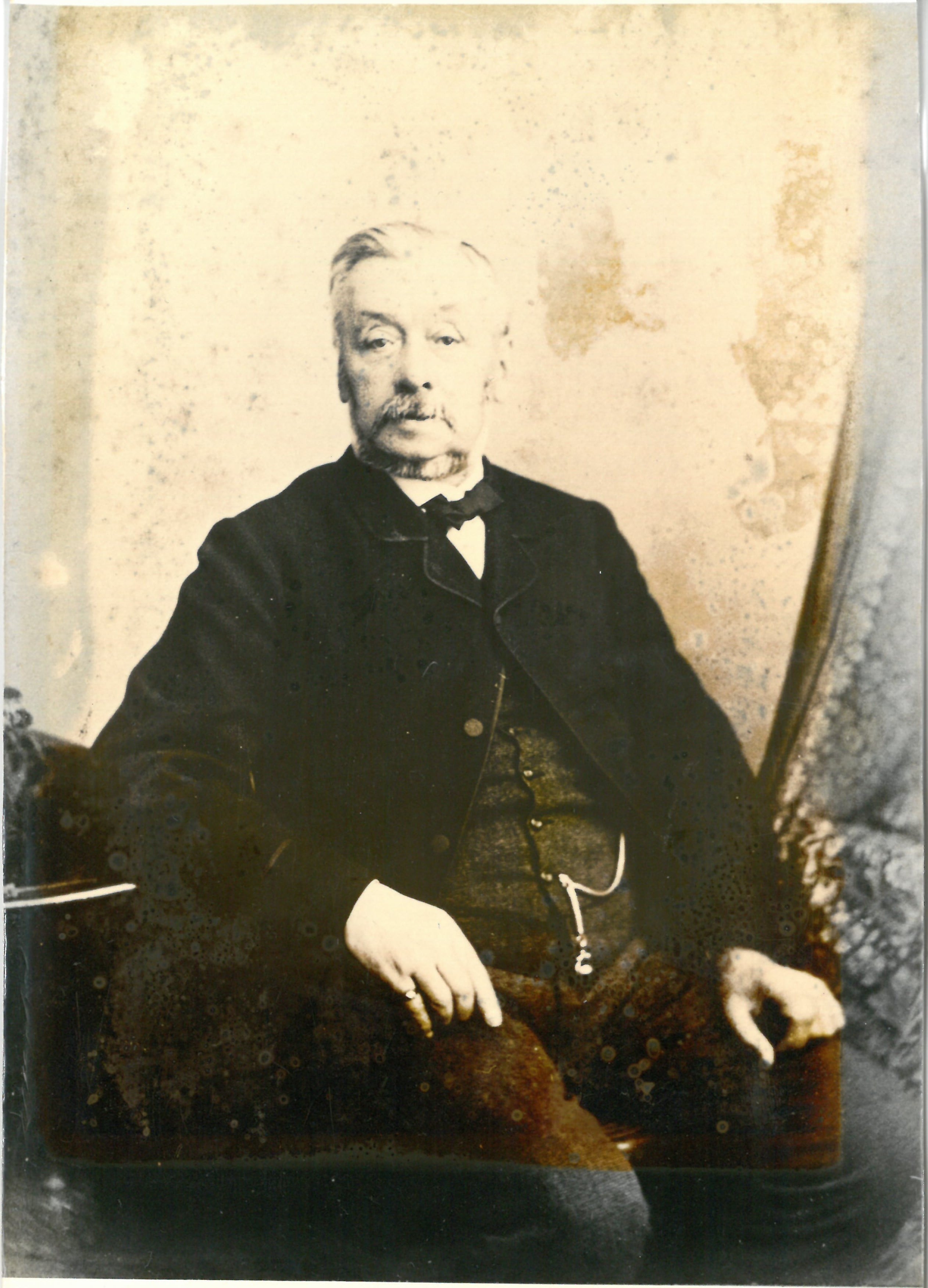
George had two businesses. He was a Tea Dealer employing three women and an Upholsterer with five men and an apprentice working for him.
Exceptional Educational Achievement
What sets the family apart is their commitment to the education of their daughters. Beatrice attended Ipswich High School.

In 1894 she went on to Bedford College for Women, part of the University of London, and took a BA degree from 1894 to 1897. Bedford College had been founded in 1849 by Elizabeth Jesser Reid, a pioneer of women’s education. London University awarded degrees on an equal basis to men & women. This was very rare in the 19th Century.
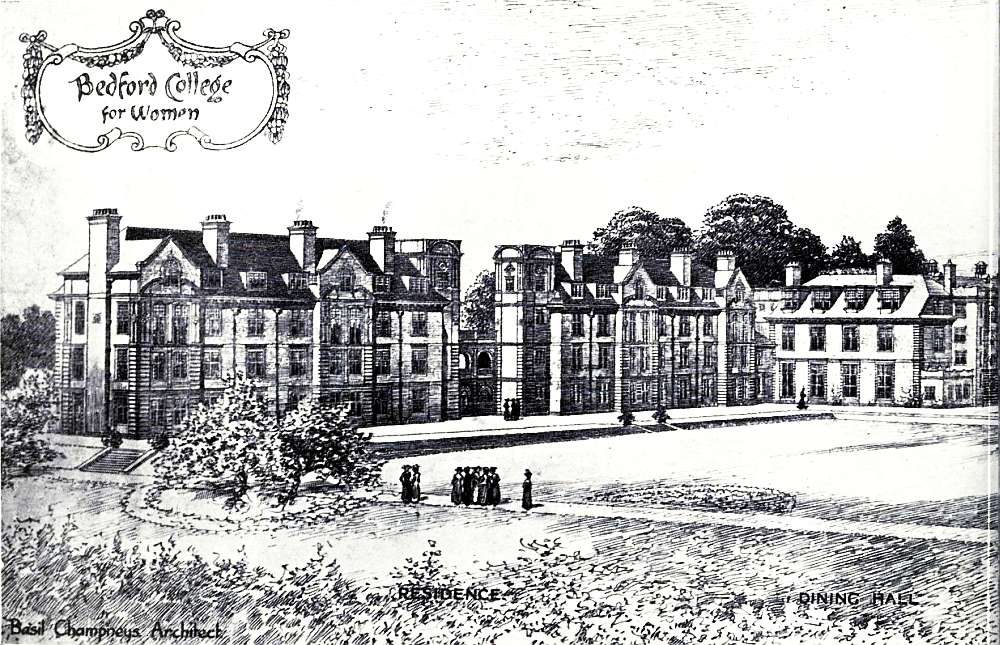
Beatrice had done very well in her 6th form work and been awarded scholarships to support her studies for her degree. She specifically chose to study the subjects traditionally studied by men including Maths, Latin, Greek, German, English Literature & English History and Roman History. Later adding Mental and Moral Science and Greek History. She did not want to be seen to follow ‘lesser’ courses, deemed ‘suitable’ for women.
There was considerable opposition to women taking degrees. Some regarded it as seducing women from their ‘natural’ roles as wives and mothers. Reformers insisted that women’s education would not stop them being mothers but would make them better mothers. They also argued that women should follow the same courses as men.
Beatrice: Teaching Career
Beatrice embarked on a career as a teacher. In those days women teachers had to be single because of the Marriage Bar. The expression ‘Yes, Miss’ was literally true.
Beatrice was working at the Preston High School for Girls on Winckley Square when she met James whose Head Office was at 7 Winckley Square. The family believes she was the headmistress of the High School. Phoebe Hesketh in her book about Edith Rigby refers twice to Beatrice as the head of the school. However, we can find no evidence for this. Beatrice certainly taught there.
When Miss Dodd left as Head of the school and Miss Stevenson was appointed as her successor a list of the staff who were retained was published. Beatrice Rickword was the first name on the list.
Presentations to the Head Mistress.
Miss Dodd and the Pupils.
Last night at the Preston High School for Girls, in Winckley-square, a presentation was made to Miss Dodd, the headmistress, who is leaving the school.
Preston Herald 7th April 1906
.
PRESTON HIGH SCHOOL FOR GIRLS
Miss Rickword, Miss Felkin. Miss Galton, Miss Aubin. Miss Easton, and Miss Catterall will continue their services as members of the staff. On May 1st Miss Stephenson enters upon her charge.
Lancashire Daily Post 25th April 1906
.
PRESTON HIGH SCHOOL FOR GIRLS,
WINCKLEY-SQUARE.
President: Right Hon. the EARL OF DERBY. K.G.
Vice-President: Dr. HAMMOND. J.P.
Visitor: LORD BISHOP OF MANCHESTER.
Head Mistress: Miss A. M. STEPHENSON (Cambridge Tripos, M.A. Dublin).
Lancashire Daily Post October 31st 1906
Beatrice’s Marriage to James Todd 1908
The Marriage certificate indicates ….James – the 44 year old ‘Bachelor’ Accountant and Beatrice – the 31 year old ‘Spinster’ Teacher were married on February 18th 1908 in Middlesex.
The Preston High School for Girls at that time was housed in 5, Winckley Square and she lived in lodgings across the square at 12, Starkie Street. James’ office was at 7, Winckley Square and he lived around the corner on East Cliff. It might have been that they met in Winckley Square but it is more likely because both were active in the Liberal Party. The Todds were leading lights in the local Liberal Party.
They moved into Penwortham House which has since been demolished. Their first daughter, Judith, was born there.
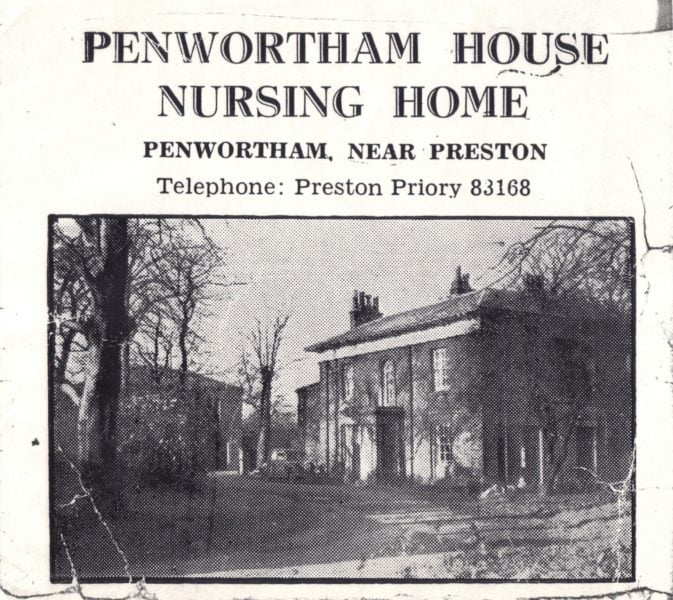
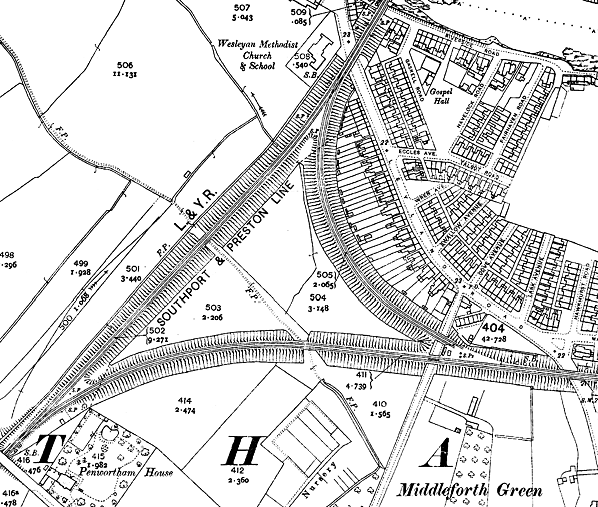
Beatrice the Suffragist
Beatrice was a keen supporter of the Women’s movement. In the 1911 census Lily Waring was staying with them. Lily was the National Organiser for the Women’s Suffrage Society and James Todd described her as a ’women’s suffrage agitator’ in his census return.
Lily and Beatrice were active suffragists but did not join the ‘Boycott’ of the 1911 Census. This was in stark contrast to Edith Rigby. Edith does not appear on the 1911 census. Nationally, the suffragette movement decided to boycott the 1911 (2nd April) census. The slogan was: If we don’t count – we are not going to be counted.
The boycott took two forms: – by spending the night away from home or ‘spoiling’ the census. Across the country women joined together on census night and stayed out all night. Some walked around Trafalgar Square; others picnicked.
Punch joked: The suffragettes have definitely taken leave of their census
Many expected to be fined or face a prison sentence but no-one was prosecuted. We can’t be sure why James Todd highlighted Lily as an agitator. It’s possible he was making it clear that she was a guest in his house and he was proud of the fact. Beatrice and he were outspoken politically and had the money not to fear the consequences.
Lily Waring friend and suffragist
Lily was born in Birkenhead. Beatrice and Lily were both 34 in 1911.Both had attended university which was highly unusual for women at that time. Lily studied at Girton College, Cambridge. However, Cambridge did not formally award full degrees to women until 1948 (a Cambridge degree brought with it voting and other rights which were jealously guarded by men). Prior to this, women at Cambridge might study the same course and take the exam but be awarded a degree ‘by title’ only. Needless to say these were abbreviated to ‘BA tit’!
Warrington Museum has a webpage devoted to Lily Waring who, later in life, became a published author and an artist whose work was well received.
Growing family move to Farington Lodge
In about 1914 the Todds moved to Farington Lodge near Leyland (Still there, now a hotel & conference centre). Their growing family meant the 12-roomed Penwortham House was no longer large enough!
The family history recalls sadly that Beatrice’s three children:-
‘…..did not like her very much, and tried to organise their lives as teenagers and young adults so she could interfere with them as little as possible.’
Beatrice the Social Reformer
Beatrice Todd’s passion was her causes rather than her family. Her causes were substantial and she made a considerable difference to the lives of people in Preston and to those of the service personnel who passed through Preston Railway Station during WWI.
Many women gained experience of organising and managing while in the suffrage movement. These transferable skills were used in wartime on the home front. They were later built on in the post-war period in political activism. Beatrice Todd spans and exemplifies these three developments.
Beatrice Todd, leading Liberal, worked closely with Beatrice Blackhurst who was a leading Conservative & Unionist. Both were active in the National Union of Women’s Suffrage Societies (NUWSS). Edith Rigby, the socialist and suffragette, was critical of Mrs Todd and her fellow suffragists; referring to their campaigns as ‘milk and water’ although Edith’s brother, Arthur, said he hoped:
‘…..she would break away from the militants to join Mrs Todd’s ‘milk and water’ campaigners.’
Preston Station Sailors and Soldiers’ Buffet
Beatrice Todd was Chairman of the Preston Station Sailors and Soldiers’ Buffet. What is clear from the selection of newspaper reports below is that she was the prime mover in establishing the Buffet. She convened the initial meeting to garner support for the idea and she remained in the chair until the end of the initiative in 1919.
She was an active fund raiser and probably not someone to take ‘no’ for an answer, as the testimony of Edwin Bush of the Empire Theatre (below) suggests. It is interesting that even two days before the armistice Beatrice Todd was making it clear that the women would continue with their efforts as long as it took. A letter of thanks, sent on the eve of the closure of the buffet in May 1919, makes it clear that Beatrice Todd was regarded as the leader of the many women who took part in what has become an iconic event in Preston’s history.
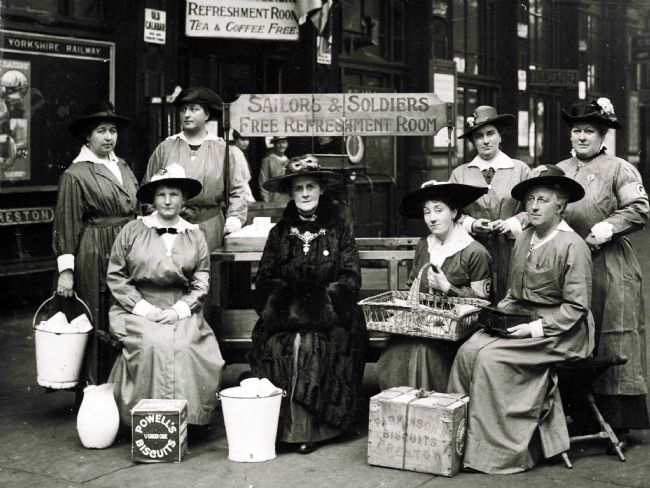
Contemporary newspaper reports
These newspaper reports provide a picture of the range of causes Beatrice Todd threw herself into and the impact she had.
REFRESHMENTS FOR SOLDIERS
Buffet for Preston Station. Mr. James Todd (Note, it was Mrs Todd not Mr Todd) presided over a meeting, held at the Town Hall, on Tuesday, to consider the question of establishing a free buffet at the railway station for soldiers and sailors passing through the town. The idea is to have the buffet open day and night, and it was stated that it is proposed to establish a guarantee fund and ask for public support. Over £40 was promised by the ladies present. Another means of providing the necessary funds will be a systematic collection from the trains. The scheme has been cordially received by the authorities, and it is felt that the men will immensely appreciate the effort. Mrs. Alex Foster was appointed vice chairman; Mrs. D. W. Brown, Garstang-road, and Mrs. McKenzie, Victoria-road, Fulwood, hon. secretaries; and Miss Willan, Fulwood, hon. treasurer.
Preston Herald 17th July 1915
.
CHRISTMAS DAY CONCERT AT PRESTON
At Preston Police Court, to-day, Mr. Edwin Bush applied for permission to open the Empire Theatre on Christmas Day for the purpose of giving a concert of vocal and instrumental music. Applicant said he had been asked by Mrs. J. Todd, chairman of the Soldiers and Sailors’ Buffet, to run a concert in aid of the buffet funds. The whole of the proceeds, without deductions for expenses of any kind, would be handed over….. The application was granted.
Lancashire Daily Post 6th December 1916
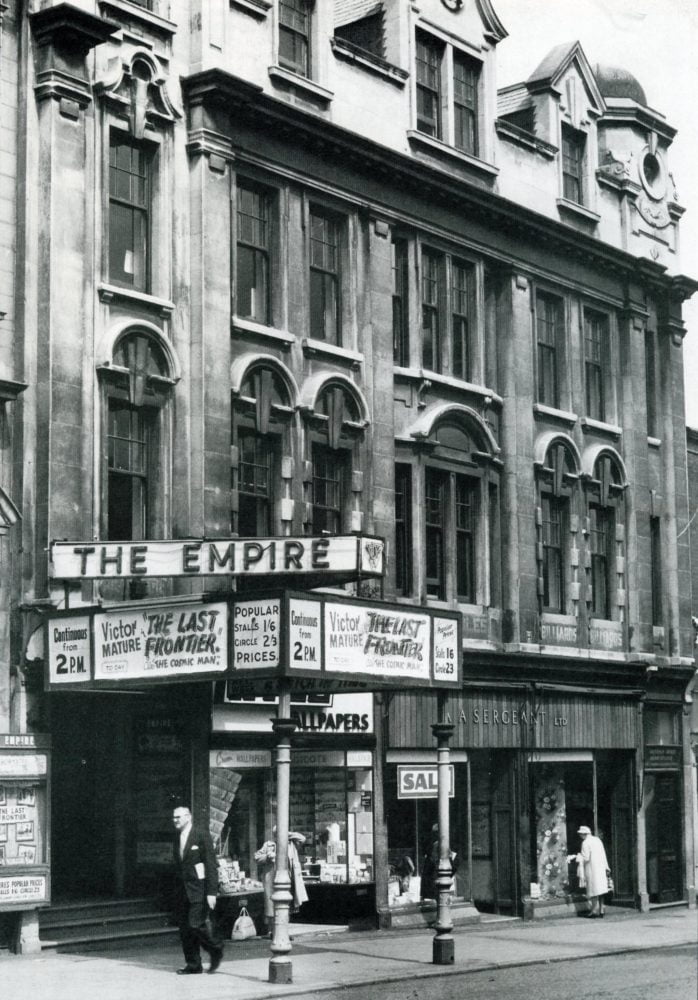
Two years and counting
STATION BUFFET
The second annual meeting of the Preston Station Sailors and Soldiers’ Free Buffet was held yesterday in the Town Hail, Mrs. Todd occupied the chair, and was supported by the Mayoress and the members of the executive: there were present a number of the working heads. Mrs. Woodcock, hon. secretary, presented her report, which showed how the work had grown both in dimension and cost, the number of men served having increased during the second twelve months from 508,223 to 852,744, making a total of 1,370,977, and the expenditure from £2,610 13s. 8d. to £5,074 12s 1d. It also paid high tribute to the untiring labours, self-sacrifice, and harmonious relations of those responsible for the carrying on of the Buffet, as well as the generosity of the public, and to the able supplementary services rendered by the hostel. The statement of accounts was submitted by the hon. treasurer, Mrs. Eastwood, which stated that the income had realised £7,036 0s. 9d. and there was a balance in hand at the end of the financial year of £1,961 8s. 8d. The cost of refreshments alone had increased to £3,858. The reports were adopted, and the officers and committees were re-elected, with the addition of Mrs. McKenzie to the executive. Mrs. Todd expressed the hope that the Buffet would not be needed much longer. But as long it was needed it would be carried on with the same devoted and untiring service that had been responsible for its success so far.
Preston Herald 27th Oct 1917
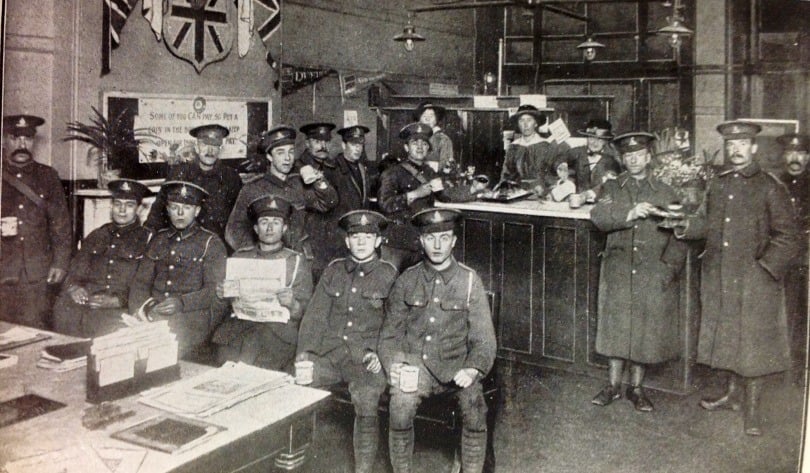
The war nears an end but the Buffet continues
NEARLY TWO AND A HALF MILLION GUESTS
Two millions and half! We are accustomed to encountering big figures in these days, whether their denomination be that of men or money. But to think that 2,433,231— to quote the exact figures—of soldiers and sailors have been the guests of the Preston Railway Station Buffet since its establishment in August 1915…
The Buffet is open continuously day and night, the work being carried on by shifts of 12 hours each. It costs on an average about £1,000 a month. It is handicapped, of course, by the rise in the price of commodities, but is able to carry on magnificent work, and we believe that this year it will have a balance in hand, though by no means an excessive one. It has hundreds of voluntary workers from Preston and district, including ladies who travel regularly from Chorley, Southport, Blackpool, and Lancaster. A large room between the main line platforms is gratuitously placed at the disposal of the committee by the L and N.W. Railway Co., and Mr. Aspinall, the stationmaster, is energetic in furthering the interests of the Buffet, the ladies at the head of which are Mrs. Todd (chairman of the Executive Committee), Mrs. Eastwood (hon. treasurer), and Mrs. Woodcock (hon. secretary), with Mrs. Threlfall as manageress.
Lancashire Daily Post 26th October 1918
The Armistice imminent
The annual meeting of the Preston Station Sailors and Soldiers’ Free Buffet was held yesterday, at the Town Hall. The report showed that 1,072,254 , men had been served during the twelve months, compared with 832,744 last year, making 2 433,231 in all since the effort was started, and at the moment the numbers were about 100,000 per month. The cost had amounted to £7,561 and the income to £10,217 leaving a substantial balance in hand. – The expenses were now about £1,000 a month.-.-Mrs. Todd, who presided, expressed thanks to those who had made it possible to carry out such work efficiently day and night under all conditions of weather and health, and said that as long as it was required the loyalty and splendid spirit of the women who had devoted their services to it would respond to the call.
Preston Herald 09th Nov 1918
There was considerable movement of troops around the UK after the Armistice. The buffet continued until May 1919. This correspondent refers to ‘Mrs Todd and her staff’ in his letter of appreciation to the newspaper :
PRESTON STATION BUFFET.
CORRESPONDENCE.
To the Editor of The Lancashire Daily Post —To-night at 9.30, the Station Buffet closes its doors. Will you grant me a little indulgence in your paper that I might personally thank Mrs. Beatrice Todd and her staff of noble women (who have made such a great sacrifice during the war) that they might do something to alleviate the hard lot of our travelling sailors and soldiers who have passed through our town?
I do not think any words of mine could adequately express the feelings of the recipients of their bounty. I have stood on the platform and seen trains arrive full of sailors and soldiers, who were tired and hungry, and have seen their faces light when they saw the tea and buns, which must have been a source of gratification and joy to “the ministering angels” who gave these refreshments to them. I have also heard that it is one of the finest buffets in the United Kingdom, and that speaks for itself. To-night it closes its doors, and I should not like to think that the work will end without some recognition of the workers. Might I suggest that some public notice be taken, and that a subscription be opened? If everyone gave a penny a sum could be raised large enough to purchase some memento for each one who had taken part in the good work—a memento in the shape of a brooch, bangle, or medallion, something that would remind them of the noble work which they have accomplished. In my opinion nothing is too great for the good they have done. —Yours, &c. SID. H. SIMPSON, 18, Christian-road, Preston, May 31st.
Lancashire Daily Post 31st May 1919
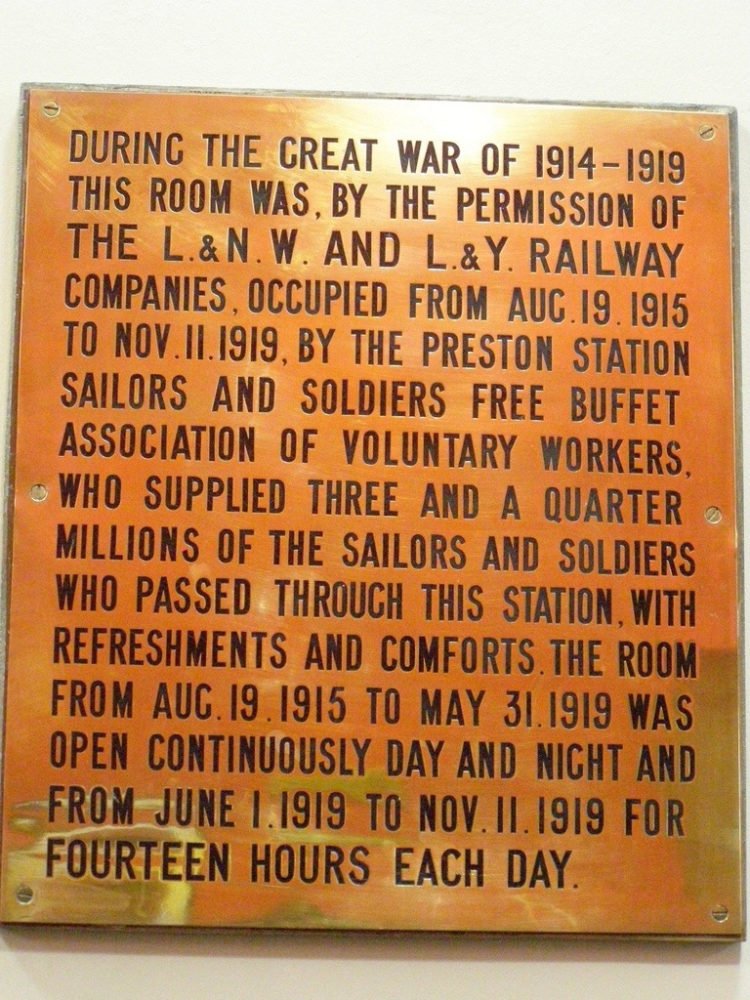
The Unintended Consequences of the leadership shown by women in WW1
Preston Infant Welfare Voluntary Women's Association
The number of deaths occurring on the Western Front focussed attention at home on the number among infants. Lack of income and lack of parental understanding about the welfare of babies and children were twin challenges to be overcome. Initially, many voluntary groups tried to organise support for mothers and their babies. In London, some local authorities began to employ health visitors with support from Government grants. There, voluntary groups opened clinics and, through subscriptions, paid for premises and for staff to treat and advise mothers and their infants.
In 1914, Lady Selbourne, president of the National Union of Women’s Suffrage Societies (NUWSS) urged members to focus on the war effort. Beatrice Todd was secretary of the Preston branch of the NUWSS. Local councils had been encouraged by government to set up centres for mothers and babies. The issue was critical, given the number of young women whose husbands had gone to war, many never to return.
Beatrice Todd wrote to Preston Council asking for permission to set up such a centre. The council needed the pressure of a visit from Mrs Todd and her committee before they would support the initiative. Beatrice’s contacts in London proved helpful. An old university friend of hers, Mrs Player, who had experience of working with such centres in London, came to Preston to support the establishment of the centres here. The first was established in July 1915 and by the end of 1916 over 2,000 babies were being seen and supported each year.
In 1918, a Maternity and Child Welfare Act was passed, which required each local authority to set up a maternal and child welfare committee and enabled local authorities to provide a full maternal and infant welfare service. Beatrice Todd was made a founder member. Beatrice’s involvement did not cease with the end of the war. Her commitment to the welfare of mothers and infants continued until she left Preston in 1935.
This letter from Beatrice Todd was in response to criticism, published in the press, from ‘mater’ of the work being carried out in Preston in child welfare. Note how robust she is in challenging criticism of the women’s movement.
CORRESPONDENCE
CHILD WELFARE
To the Editor Sir.— It is probable that your correspondent ‘mater’ who in Saturday’s issue wonders whether the women agitators of former days or their societies will set to work … to inculcate those maternal and domestic qualities which should be more congenial…. is still ignorant of the fact that the impetus which has been given during the last three years to child welfare work of every description in many towns besides our own is largely due to action taken individually or in response to the instructions sent on the outbreak of war to constituent societies of the 500 National Union of Women’s Suffrage Societies by their Headquarters Executive, who recognised that the most urgent war work women could undertake was to save life by endeavouring to reduce the rate of infant mortality in particular, and by concentrating on maternity and welfare work in general…….. Again, I understand that it is the East London Federation of Suffragettes who have done splendid work for child welfare by converting public-houses into Pure Milk Depots known as ‘The Mothers’ Arms.’ If ‘Mater” would herself like to join the army of women whom she urges to take up the very social work which has so long been advocated by Suffragists, and which is now actually being carried out by women of every shade of opinion, I should be delighted, on receiving her name and address, to forward particulars of the way in which she can help. e.g. at the Walker-street Babies’ Welcome of which I have the honour to be correspondent.— Yours, &c,. BEATRICE TODD. (Hon. Sec. Preston Suffrage Society). Farrington Lodge, October 6th.
Lancashire Daily Post 8th October 1917
In the post war period, extending to the 1930s, although never standing for election, Beatrice was co-opted on to Council committees.
MEETING
The Health Committee of the Town Council recommends that a Maternity and Child Welfare Committee be appointed. As follows: —The members of the Health Committee, Mrs. Astley Bell, Mrs. Rawsthorn, Mrs. James Todd, Mrs Marsden, Mrs. Dunbar, Mrs Bernard Player, and a member of the Preston Insurance Committee.
Preston Herald 26th October 1919
.
CORPORATION COMMITTEES
APPOINTMENT OF CHAIRMEN AND VICECHAIRMEN AT PRESTON
Preston Town Council, at their meeting next Thursday, will be asked to approve the appointment of the following chairmen and vice-chairmen of committees. The chairman’s name is given first in each case — Maternity and Child Welfare: Ald Mrs. Pimblett; Mrs. James Todd.
Lancashire Daily Post. November 20th. 1931.
Note most committee appointments were councillors or aldermen. Beatrice was neither. This suggests a wider recognition of her qualities & expertise. Note too this is after James’ death.
This opinion piece from the Lancashire Daily Post makes it clear that the public perception of women had been transformed by what was achieved during wartime. It also points up an awareness by the writer of sexist language 100 years ago.
FOR SOLDIER VISITORS
Work of the Preston and Ashton Hostels.
AN ORGANISATION WHICH CALLS FOR CONSTANT SUPPORT.
One of the great features of the war has been an exceptional display of feminine administrative ability and general resourcefulness. Those qualities were latent, of course, and only needed opportunities to manifest themselves. Womanly sympathies has accomplished great things at all times of crisis, but in work calling for business acumen, practical foresight and energy—not to say hard mental and physical toil —women have so borne themselves during the last four strenuous years that the term weaker sex has become a sorry misnomer. We have seen how well in Preston and district women have managed and manned —one falls back unconsciously into the old expression—such splendid institutions as the V.A.D. Hospital, the Prisoners of War Aid Societies, the railway buffets ….We have noticed with what ingenuity schemes for raising money have been devised, and with what skill they have been carried out. And how splendidly they have worked the various committees connected with municipal and other bodies during the last four years! Their voluntary work has been of inestimable value.
Lancashire Daily Post 25th Nov 1918
Family Life
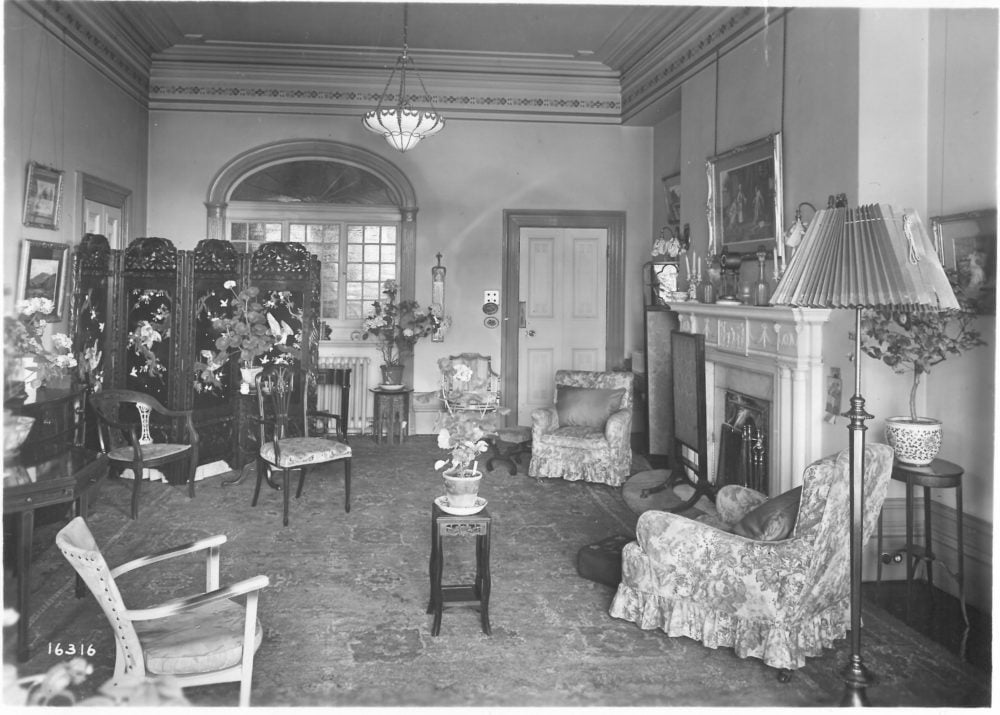
Beatrice & James always had staff employed in both Penwortham and Farington. The daughters’ recollections are of two parents who were largely absent from their lives. Damaris and Ursula recalled how Beatrice was in a ‘state of terror’ when it was nanny’s day off. Beatrice didn’t take over, the girls were passed to the housekeeper
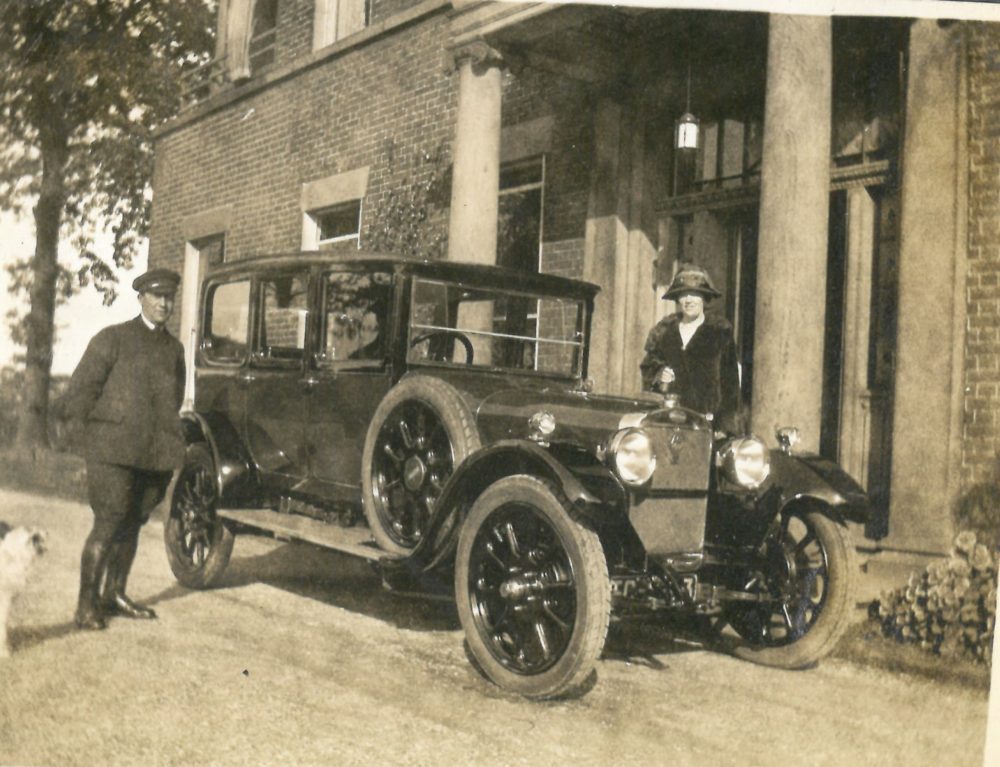
The Todds lived in great comfort and considerable style. Farington Lodge had extensive grounds, a grass tennis court and even sufficient driveway within the grounds for two of the girls to learn to drive before going on public roads.
James and Beatrice ate together in the dining room when James was at home. The girls ate separately although, as they grew older, they were allowed to join their parents for dessert on Sundays.
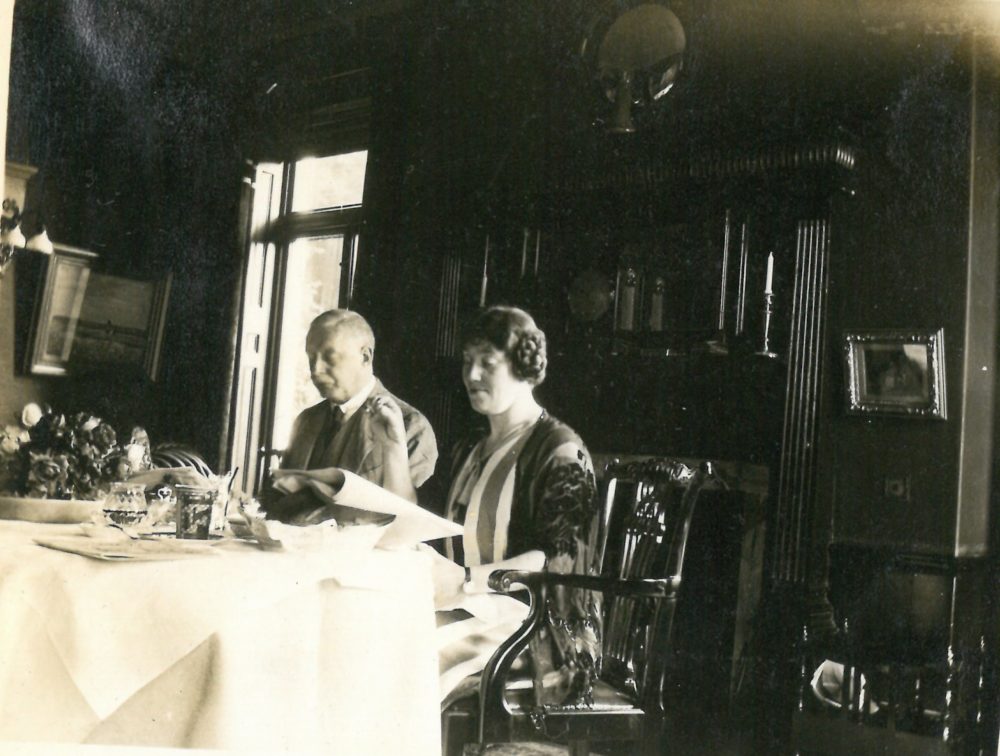
Holidays
Summers were often spent by the seaside, particularly in Abersoch. James would go for the weekends. Beatrice, the girls, nurse and Moxham the chauffeur were all there for weeks. Beatrice dressed for the beach but James still looked immaculate with bow tie.
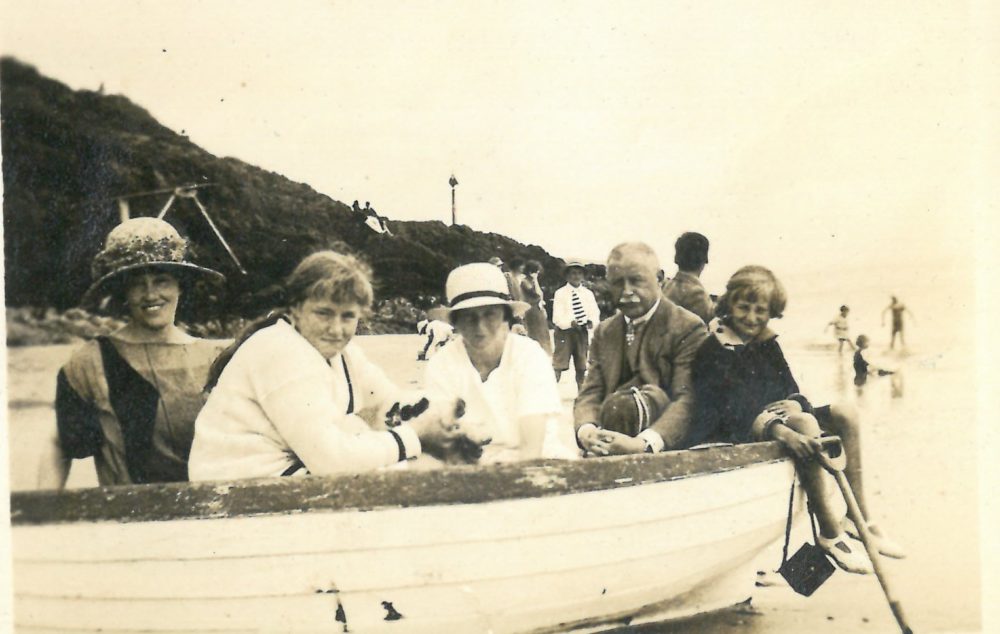
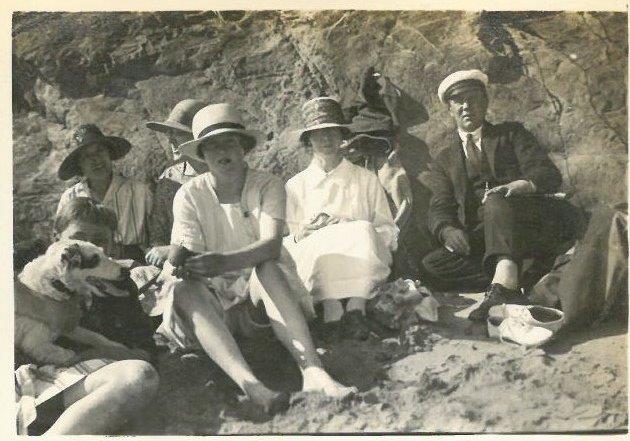
James and Beatrice holidayed in style. Having honeymooned in Monte Carlo they went on to take an annual holiday there. The girls did not go with them as children. Beatrice and James sent them flowers.
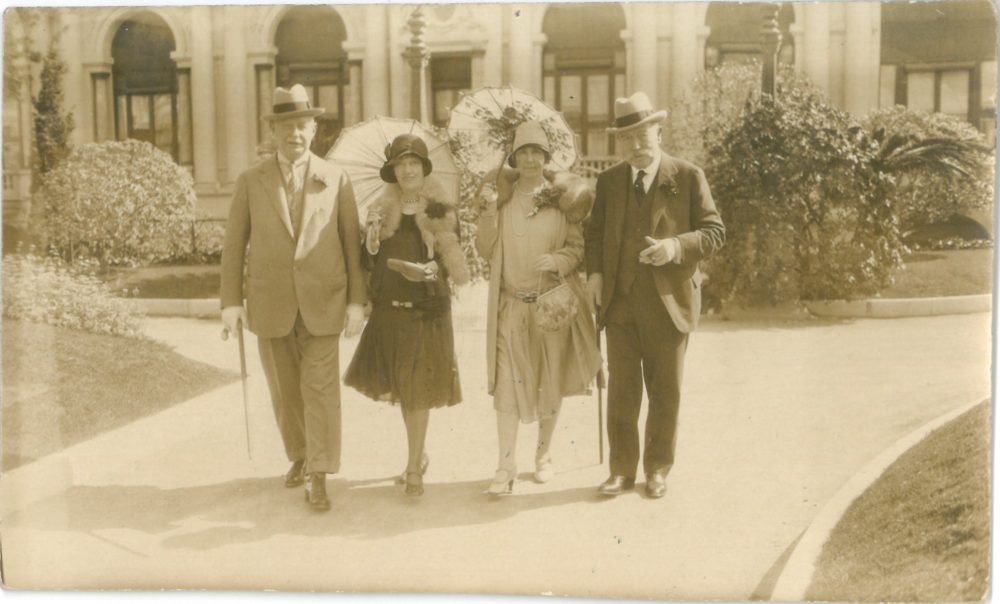
Widowhood
After James’ unexpected death in 1931 Beatrice had to make rapid adjustments. James’ financial position had deteriorated prior to his death. Beatrice, perhaps for the first time since she was a teacher, had to consider how to make a living.
She reorganised her domestic arrangements. The number of staff was reduced. The girls were allocated domestic chores. A family friend, Henry Spurrier of Leyland Motors, later approached Beatrice and asked if clients of Leyland Motors could stay at Farington Lodge while visiting the company. Beatrice agreed and became the hostess to clients of Mr Spurrier.
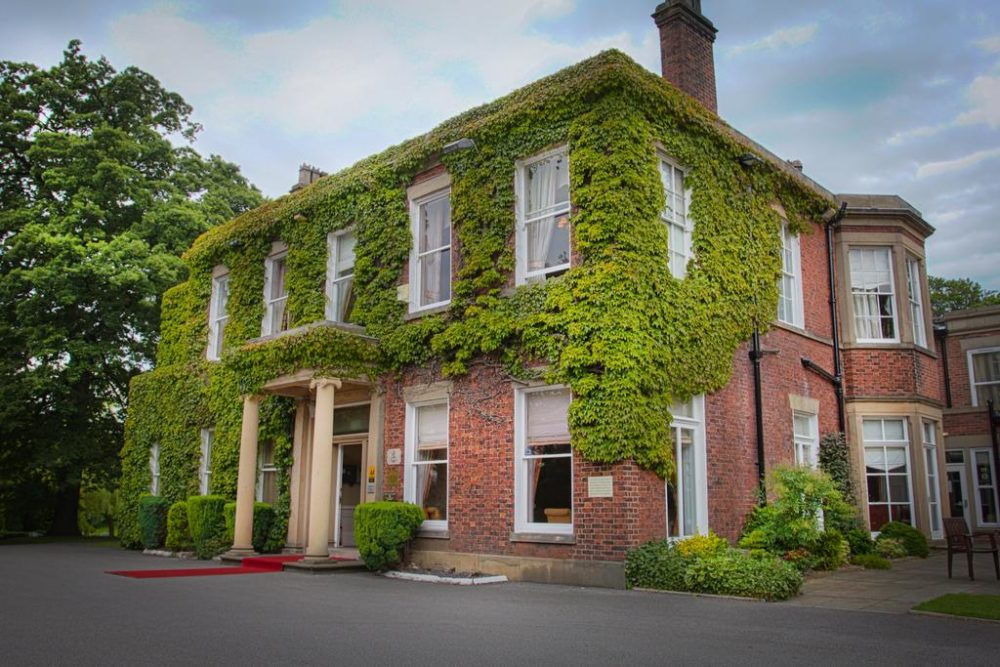
This lasted until 1935 when Beatrice agreed to sell Farington Lodge to Leyland Motors. She decided to move south in order to be near her sister and her London friends.
Leyland Motors retained the Lodge for their guests. The duties of hostess passing first to Mrs Beer, wife of the local vicar and subsequently to Emily Pomeroy, who had started with the Todds at the Lodge as a 14 year old kitchen maid.
Beatrice served as Vice Chairman of the Park School Governors from 1933 to 1935. In 1932 she established The James Todd Library in honour of her late husband and donated a number of her own books on Social Issues and the lives of Social Pioneers.
Despite reorganising her domestic life Beatrice maintained her social and political activism throughout her final few years in Preston.
Among her roles and activities were:
- 1933 President of the Preston Girls’ Hockey League
- J P (first serving in 1921)
- 1935 still active in the Preston Infant Welfare Voluntary Workers’ Association and raising money for the ‘Sick and Needy Mothers Holiday Fund’.
In the first half of the decade hundreds of mothers benefited from free holidays in Lytham and Witherslack (near Grange).The Post reported that Lady Maureen (Stanley) spoke of
‘the tiredness and depression which could only be dispelled by a rest and change. A vote of thanks to Lady Maureen was proposed Mrs. James Todd.’ 21/06/1935.
Her departure was marked by widespread praise for her work over the years. Speeches she made during her time in Lancashire had focussed on housing, health, education and women’s rights. She was committed to the improvement of the condition of the poor. She took part in public debates with women, some of which were (intentionally) amusing.
A farewell article to Beatrice (still calling her Mrs James Todd in line with the custom of the time) appeared in the Lancashire Daily Post on 12th August 1935.
Farewell to Preston
On leaving Farington Lodge Beatrice placed on ‘permanent loan’ to the Harris Art Gallery three paintings. A large canvas, portraying the three daughters of Beatrice and James ; painted by William Logsdail (1920). Another is a sea piece by Henry Moore. The third is a landscape, probably in the Isle of Man, by William Wells, an artist who for seven years was a scenic painter at a Preston theatre.
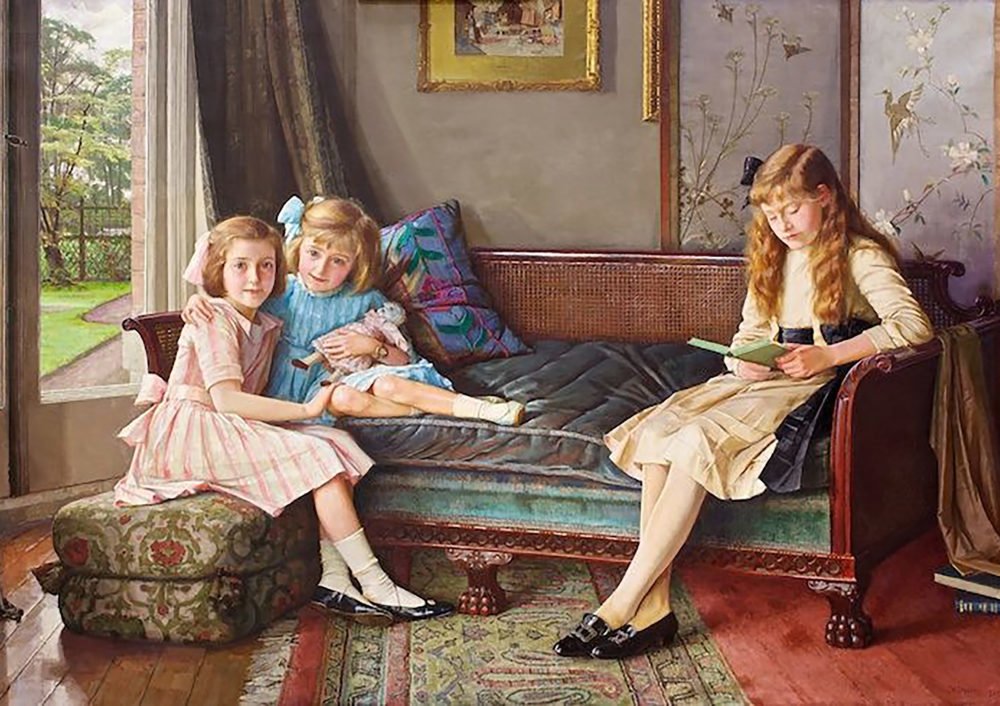
Beatrice moved to Hertfordshire where she called her house ‘Far Farington’. She subsequently visited Preston from time to time as the guest of the groups she had worked with.
She died in 1958. Alice Stoneman, the headmistress of the Park School, wrote an obituary.
Beatrice Todd’s achievements were considerable. She campaigned on national and local issues before they were accepted as important. She raised awareness. She was an activist as well as a theorist. She got things done. She was a leader and unafraid of challenging authority. She knew the importance of society caring for mothers and their children. Ironically, it was as a mother that she was not well regarded by her own children. They thought, with justification, that she preferred others to carry out the day to day task of bringing them up. Having sent them away to Boarding School the girls later reported that neither Beatrice nor James visited them on the days set aside for parental visits.
Tellingly, her dying wish was that she should be cremated and her ashes placed with her husband’s in the wall of 7 Winckley Square. Judith, the eldest daughter did not comply with the wish. We don’t know why. Perhaps she thought it unlikely that the owners of 7 Winckley Square would welcome a fresh internment in their wall or perhaps it simply reflected the lack of feeling between the two of them.
Special Thanks
Beatrice Todd has been an unusual subject in a positive way. We have been able to liaise with her granddaughter, Susan Rees, who has been brilliant in providing information and sources about her grandmother Beatrice, grandfather James and their three daughters, Judith, Ursula and Damaris. Susan is Ursula’s daughter and was an adult when ‘Granny Todd’ died. Susan has always had a keen interest in her family’s history.
Peter Wilkinson (FoWS) has supplied considerable additional material, particularly on the Todds’ time in Penwortham and Leyland and Eileen Rawsthorne has provided background on Beatrice’s connections with the Park School.
Thanks too to Philip Jeffs of Warrington Museum and to Carol Mayo, a volunteer at the museum, for their help in the background to Lily Waring.
By Steve Harrison